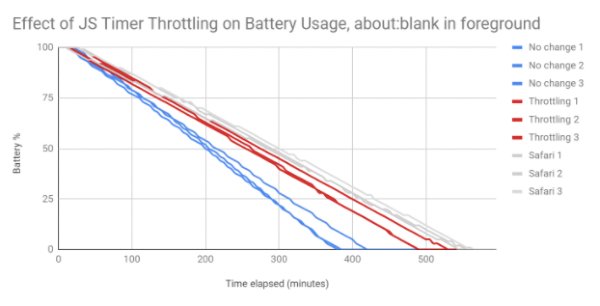
Google Chrome to Get Battery Life Saving Features on Version 86
- Google wants to make Chrome gentler when it comes to energy consumption, especially on laptops.
- The web browser will soon bring an option to identify inactive tabs and unlink them from resources.
- The first tests showed an improvement in the battery life of up to 28% on the Apple MacBook.
Google Chrome has grown into becoming one of the most notorious battery hogs and resource-capturing vampires in the world of software, with memes about how the web browser can eat up all your RAM space being shared online like freshly-baked butter cookies. When it comes to mobile devices like laptops, this is even worse, as pushing the CPU and RAM harder to help the user to browse the web can quickly drain the always limited battery juice. Google has decided to finally do something about this, and it’s planning to implement battery-saving features for Chrome 86, which is expected to land in the coming months.
Chrome 86 will feature an experimental system that handles background webpages differently. When we say “background”, we mean tabs that the user is not actively viewing, and which don’t necessarily have to be kept “alive”. According to the reports, this “tab throttling” system will allocate the available resources on the tabs that lie in the foreground, so the browsing performance will get a lot better as well.
Source: The Windows Club
By testing this feature on the MacBook, Google found that the battery life of Apple’s laptop could be extended by almost 2 hours, which is 28%. When testing 36 background tabs and a full-screen YouTube video playing on the foreground, the battery life gains reached 36 minutes (13%), which is still a significant difference.
Of course, desktop versions of the Chrome browser won’t have to save energy, so this new system may be optional and not hardcoded into an always-on default mode. When active, a JavaScript timer with count 5 minutes to determine whether or not a webpage is actively used, and if it isn’t, it will be put to sleep. Waking the dormant tab again will require some time to re-load it, as expected, but resources and battery life will have been saved in the meantime.
There’s still quite a lot of testing and optimization to be done before the feature hits the stable branch of Chrome, and from there, all Chrome-based browsers like the Edge or Brave will also get it. Google may or may not offer more granular controls over the tab sleep time intervals, but we don’t know for sure yet. Certainly, the battery-saving promises that Apple made for Safari 14 during the Big Sur presentation have ringed many bells in Google offices, as Chrome will soon have to fight an even stronger opponent in the macOS space.
Read More:
- Researcher Demonstrates How Easy It Is to Create Malicious Proxies on Chrome
- Google Facing Class-Action Lawsuit for “Incognito” Tracking on Chrome
- Google Introduces New Privacy and Security Controls for Chrome








